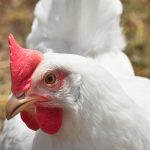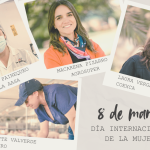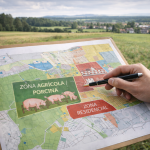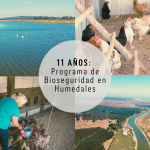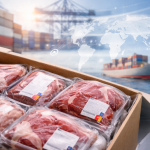Chile Conscious Origin is a program that promotes the sustainability of the agri-food industry through four pillars: definition of sustainability standards by production sector, assessment of sustainability performance, a public-private partnership, and dissemination of results. It is led by the Office of Agricultural Research and Policies (ODEPA), part of the Ministry of Agriculture, to position Chile —both locally and internationally— as a supplier of safe, healthy, and sustainable foods.
The program provides the guidelines to develop a tool to measure performance that translates into comprehensive benefits for stakeholders: producers are able to conduct compliance self-assessments, identify their weaknesses at the production level, and manage risk according to their own priorities. Trade associations can collect aggregate information and focus their efforts effectively on critical aspects of sustainability, allowing the development of support programs for their member companies. The stateis provided with an overview of integrated sector management indicators and information regarding the contribution of companies to the Sustainable Development Goals (SDGs). Meanwhile, consumers are able to verify how food is produced and make responsible choices.
“This program is based on a close public-private relationship to guarantee sustainable food production with the potential to build a path towards sustainability together with the productive sectors and in line with the requirements of consumers. It also becomes an attribute of Chilean agri-food exports and the country’s image,” said María Emilia Undurraga, Minister of Agriculture.
The program was launched as a pilot in 2020 during Chile Agrícola Expo with the participation of productive sectors represented by ChileCarne, Asprocer, and the Dairy Consortium. During the 2021 version of the Expo —held August 24 to 26— the seminar «Progress of the Chile Conscious Origin Program” was held to share the main achievements of this first year of work.
Advances have been made in developing standards for the meat and dairy sectors.
“We developed these standards based on the guidelines we found in the program’s toolbox and the recommendations and opinions of experts from several sectors. Then, we were able to conduct a pilot with our producers and propose opportunities for improvement,” said Renzo Boccanegra, ChileCarne’s Sustainability Department Project Manager.
In turn, Natalie Jones, Sustainability Coordinator of the Dairy Consortium,explained: “We had to face the challenge of reaching an agreement between institutions that see the world differently, which demands investing a lot of time to reach compromises. The result has been quite good and we want to keep moving forward in the same direction to build a more sustainable sector.”
Another outstanding result was the development of an online platform that allows each company to have its standards and self-evaluate through their computer or smartphone, whether at the office or in the field. Daniela Álvarez, Chilecarne’s Sustainability Manager explained that «each producer can self-evaluate from the beginning, learning where they stand in terms of sustainability, their position on the map, and obtaining guidance on how to move forward.»
This platform will also allow monitoring progress in production, comparing companies with their peers and with international standards: «Companies will be able to release information about the standards achieved, their path and progress in sustainability issues, as well as certifications they might obtain, validating their work in the eyes of consumers and other stakeholders,» Álvarez concluded.
Sustainability Standards Chile Conscious Origin Program Video:https://www.youtube.com/watch?v=tGgJPW5PDJo
Producer Testimonies Chile Conscious Origin Program Video:https://www.youtube.com/watch?v=B2Qa_twxrkk

